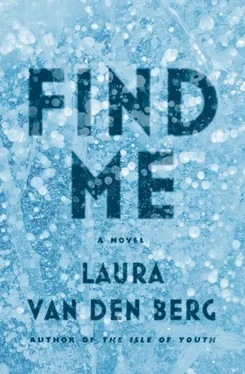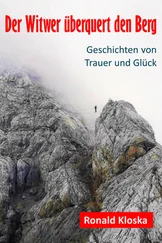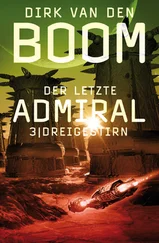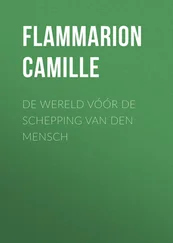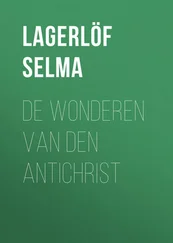At night, I smell that fresh grass scent. I hear footsteps in the hallway and a woman calling my name.
She’s here, how could she be here, she’s here.
In late February, I’m standing at the arched window and remembering the pilgrim who did the perfect cartwheel and then wandered out into the plains. I can see him trekking across the white field. I can see the winding trail of footprints he leaves behind.
The sun is setting. The horizon is the color of fire. Darkness is gathering along the edges of the field and creeping toward us.
We have seen so much from the windows of this Hospital.
Every day Rick tells me more about the Laws of the Road. If you need water, find damp ground and dig a hole. If you drink from a river, make sure it’s moving fast. Grass is edible. Beetles and deer will bring you luck. At the window, I think about these rules and remember the pilgrim walking away from the Hospital and I think, Why can’t that be me?
One night I see N5 sitting alone in the Common Room. There is no one else around. I sit next to her on the couch. I get so close I can feel her white suit rustling against my bare skin. She smells of rubbing alcohol. Her breath sounds like the ocean. I whisper, “What is the code, what is the code, what is the code.”
She doesn’t do anything for a long time. I don’t give up. “What if you had a daughter? What if she got stuck in here?”
She picks up my hand and taps a series of numbers into my palm. I count the little pulses. The code is a date. The year of the date is 1980, the same year Dr. Bek went to work in the Hospital in Oslo, the same year he was married.
I don’t say any good-byes. I take my mother’s photo from its hiding place and go down to the basement. At the storage room, the code gets me in. I peel off my scrubs and put on my real-person clothes. Everything feels different on my body than it did before, the roughness of the denim, the weight of the sneakers.
I go to the door with the triangular window and enter the code. I hear the lock open. I push.
Outside I climb a short flight of concrete stairs. The cold is like being stuck with a needle. The air is thin and smells of tree bark. I pull my sweatshirt sleeves over my hands.
From the ground, I gaze up at the Hospital. It looks massive and impenetrable in the night, like even if I wanted to I wouldn’t be able to get back inside. Light streams through the windows. On the fifth floor, my floor, I see a passing silhouette, a wisp of a person, and I wonder if anyone is watching. If anyone will ever tell my story. If anyone will remember.
The dead have certain obligations. Is one of them to remember us?
— Joy Williams, The Quick and the Dead
After the Hospital, I run through stands of trees that have been turned into white skeletons by winter, the branches grabbing at my sweatshirt sleeves. I fight through drifts that swallow my knees and want to keep me with them forever. After the Hospital, I slip up a rise, clutching icy brush I can feel but not see in the night, frozen stems slicing open my palms. I slide down on my back and the rocks sticking out of the snow like horns scrape skin off my spine. I get snow in my hair and under my shirt and in my shoes and in my pockets and in my mouth.
After the Hospital, there is no one to warn me of the dangers, to protect me from the flaws in my judgment, and so I don’t realize I am running across a frozen lake until the ice creaks. I stop. My lungs are burning. Ribbons of blood are hardening on my hands. The ice trembles underneath me. I have no idea how far I am from solid ground, if I am inches away from stepping through a gauzy circle of ice, into a deep and endless freeze.
After the Hospital, I watch dawn turn treetops and power lines gold, light up the ice-slick road that I will follow to La Harpe. I see a deer leaping across a frozen stream and rushing into the woods. I feel every nerve curled under every fingernail. I see crisscrossing contrails in the tender peach-colored sky, even though there is no sign of a plane.
In La Harpe, the streets are rivers of brown slush. The sidewalks are ghosted. The tops of the buildings are wrapped in smoky fog. I don’t see any passing cars, no way to hitch a ride. I find a covered bus stop on a corner. There is no posted schedule; the routes and times are a mystery. I fall onto a bench and feel the wild pulse of my heart, beating at a speed that might be fatal, but I am away from the Hospital, my mother’s photo in my back pocket, and I remember everything that happened there.
* * *
The bus that slows in front of the stop groans and leaks exhaust. The windows are dark. The hubcaps are crusted in mud. Can it take me anywhere worth going?
The door pops open and a driver in a tan uniform stares down at me. He is a lean man with sunken eyes. “You plan on getting in?” he says.
“I’m considering my options.”
“You’re about to consider yourself out of a ride.”
There are no other passengers. A long skinny aisle runs between the rows of seats. The rubber matting on the floor looks sticky. The driver says the bus is headed for Kansas City, which is a start. After I pay, I am down to twenty-five dollars in cash. I take a seat in the back and the bus lurches forward. The skin on my fingertips is waxy and gray, a color I have never seen on skin before.
I think about my infant self in the cardboard supermarket box, waiting to be found. I think about the burn of the cold on my tiny fingertips, all the pain I must have felt, the pain I was too young to remember.
Outside La Harpe we move through a white sea. The bus skids on the ice. I see another deer, but this one is dead, spread out on the roadside, its middle split open. The guts are a dark purple mush, the borders of the flesh bright red with blood. It looks like something in the wet middle of the deer is still moving, and I watch a snake slither out from the intestines and down the side of the road.
A list of what I know about dead bodies: after you die, your cells explode. After you die, your organs eat themselves. As a result, the bacteria in your body does not die at all; it keeps right on living. There are five stages of decay. They begin with bloat, end with bone.
I see green Christmas garlands twisted around a barbed-wire fence. I see an orange car rusting in a field. The tires are missing; the metal body is sinking into the land. Brown cattle rooting around in the snow. A windmill, the blades turning in a great slow circle.
On the bus, there is the feeling of passing from one self into another, like a ship moving from a bay into the vastness of open water.
I only know where my mother lives and that she is alive. Alive! I feel like shouting that word out the bus window. In Florida, when I find her, it is possible she will not be happy to see me. I know this. It is possible that whenever a strange young woman approaches, she feels a current of dread.
I have thousands of miles to travel. I don’t know how many days those miles will take.
In time, she’ll see that I’m worth keeping around.
“Do you know about existence affirmations?” the bus driver calls back to me.
I move up a few rows. The fog twists over the road in a way that makes me think it’s not just air and water but something alive.
“I don’t know,” I say.
“If you affirm your existence daily, it will continue to be true.” He drums his fingers on the wide black wheel. “Every day when I wake up I look at myself in the mirror and say, ‘I am alive I am alive I am alive.’”
It sounds like this man is doing one of the Pathologist’s meditations. I wonder what he would think of Dr. Bek and his theories about the unconscious mind.
Читать дальше
